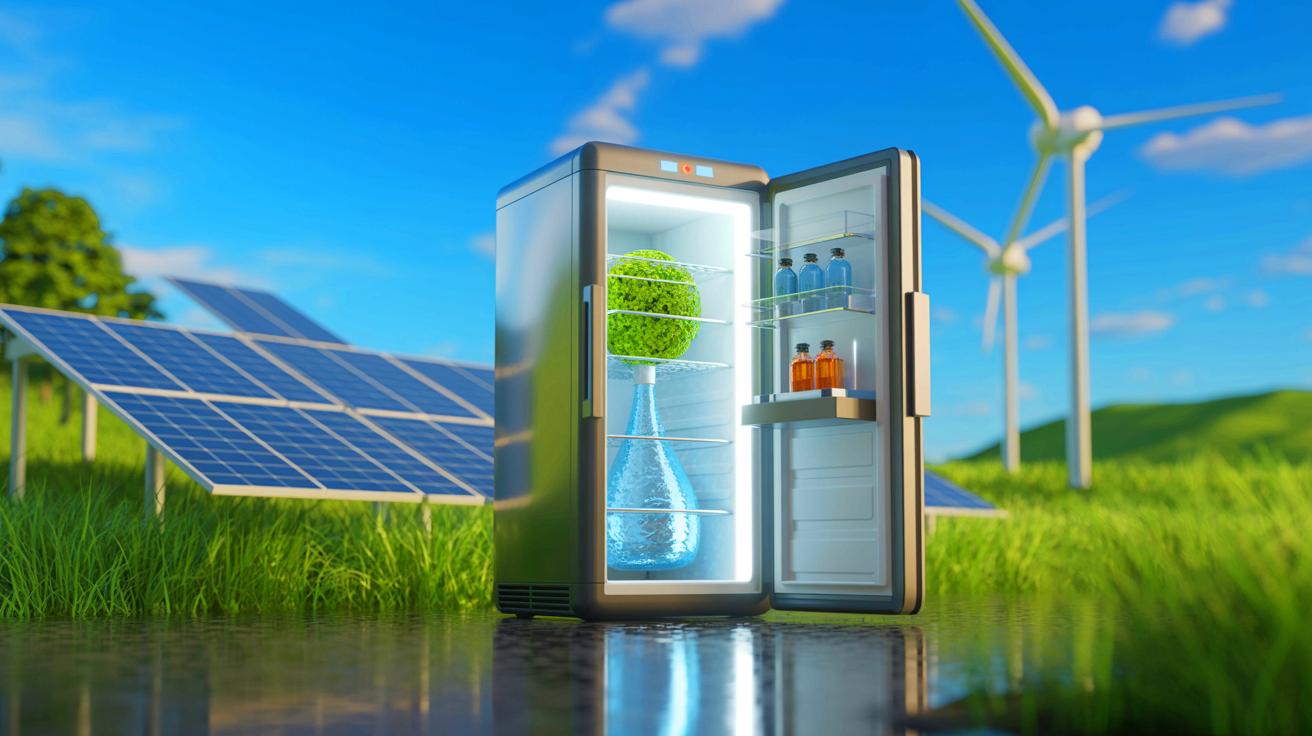- 🌍 Aircela introduces a revolutionary machine that converts atmospheric CO2 into gasoline, promoting sustainable energy solutions.
- 🔬 The technology is based on pioneering research by physicist Klaus Lackner, focusing on atmospheric carbon capture.
- 💡 Backed by investors like Chris Larsen and Jeff Ubben, Aircela plans commercial deployments by fall 2025.
- 🚗 The innovation allows gasoline production without altering existing engines, aiming for a circular bioeconomy and reduced carbon footprints.
In an era where energy consumption is at an all-time high, the ability to generate gasoline from the air appears almost magical. The innovative startup Aircela is spearheading this groundbreaking technology, promising to revolutionize how we perceive and utilize fuels. This approach not only aims to address the urgent environmental concerns associated with traditional gasoline but also seeks to offer a practical solution that aligns with existing infrastructure. As we delve deeper into Aircela’s journey, we uncover a promising vision that could reshape the energy landscape.
Aircela: A Game-Changing Innovation
Founded in 2019 by Mia and Eric Dahlgren, the New York-based startup Aircela has introduced a revolutionary machine that creates gasoline directly from the air. This device, similar in size to a refrigerator, captures atmospheric CO2 and converts it into fuel on the spot. The process is powered by renewable electricity, resulting in gasoline that is free from sulfur and heavy metals, making it compatible with existing engines without costly modifications.
This innovative method stands out from conventional synthetic fuel production techniques. By capturing carbon dioxide directly from the air and transforming it into gasoline locally, Aircela offers an eco-friendly and convenient solution. This technology has the potential to significantly reduce the carbon footprint associated with fuel production, paving the way for a more sustainable future.
Strategic Support and Industry Reactions
Aircela’s innovation has garnered significant attention from influential figures in the energy sector. Initially skeptical, Karl Dums, a former Porsche executive, became a supporter after witnessing the technology in action. “I wish you all the success in the world, but I couldn’t believe it would work,” he admitted. “Thankfully, I was wrong. Aircela has earned my respect.”
The company also enjoys backing from notable investors such as Chris Larsen, co-founder of Ripple, and renowned activist investor Jeff Ubben. Additionally, Maersk Growth, the venture capital arm of Danish maritime giant A.P. Moller-Maersk, provides strategic support to this innovative initiative. Morten Bo Christiansen, a senior vice president at Maersk, highlighted their interest in Aircela’s air capture approach, underscoring its potential to revolutionize the industry.
Scientific Foundations and Future Prospects
Aircela’s technology is rooted in pioneering research by physicist Klaus Lackner, an expert in atmospheric carbon capture. His work was showcased during a demonstration on May 22, 2025, held on a rooftop in Manhattan’s fashion district. This event highlighted the viability of the technology and its potential impact on future energy solutions.
Buoyed by financial and strategic support, Aircela plans to launch its first commercial deployments by fall 2025. The machines will primarily target off-grid users as well as commercial and industrial sectors seeking non-fossil fuels without significant infrastructure changes. This approach promises a seamless transition to greener energy practices, promoting sustainability across various industries.
A Vision for the Future
Aircela envisions a world where individuals and businesses can locally and independently produce their own fuel, contributing to a circular bioeconomy. This vision could transform how we produce and consume energy sustainably while dramatically reducing our environmental footprint. As the world urgently seeks durable solutions to escalating climate challenges, Aircela is poised to play a crucial role in the shift towards a greener and more balanced future.
With such innovative technology on the horizon, the future of energy production and consumption looks brighter. How will advances like Aircela’s shape our approach to sustainability in the coming years?
Our author used artificial intelligence to enhance this article.
Did you like it? 4.3/5 (29)
